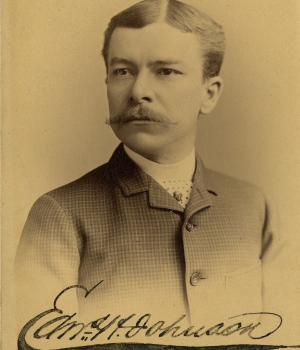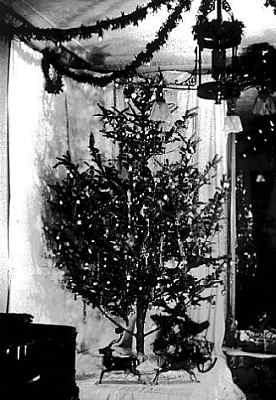My grandfather George V. Brown, Class of 1898, and my uncle Walter A. Brown, Class of 1923, were inducted into the Hopkinton High School Top of the Hill Class of 2016 this evening. Top of the Hill honors graduates of the school whose careers were marked by both high achievement and contribution to society.
I had the privilege of accepting the honor in their names and of speaking in their behalf. The following is my address to the gathering.
 In Hopkinton you have a saying. “It all starts here.” That’s true, when you’re talking about the world’s most prestigious road race.
In Hopkinton you have a saying. “It all starts here.” That’s true, when you’re talking about the world’s most prestigious road race.
But that’s not the entire story of Hopkinton and sports. Not at all. Hopkinton has given much more to the world of sport, both in America and abroad. Better to say “It all started here.”
It all started with two of the men that Hopkinton honors this evening for achievements and contributions to society. George V. Brown, my grandfather, and Walter A. Brown, my uncle, were two of our country’s finest sportsmen. They were founding fathers and pioneers.
So much that was good in the world of sport, over more than 60 years of the 20th century, came about because of them.
Regarding their achievements – it would take a long time to list them all. I will mention just a few. But before doing so I want to point out that these gentlemen were not sportsmen as we understand the term today. They didn’t enter their professions as wealthy men. Sports were their livelihood, not their hobby. They were very good at what they did. But more importantly, they were good people. They were men of their times, but they were men for all seasons and for all time.
George Brown went into sports coaching and administration right after Bryant and Stratton Business School. By 1899 he was working at the Boston Athletic Association, and became its Athletic Manager in 1904. The BAA was a prime source of athletes for America’s Olympic teams. George was at the 1904 St Louis Olympics and at every Olympic games until his death, as a coach or an official.
He also was hired to run the rebuilt Boston Arena in 1919. Hockey flourished at all levels in Boston. The Bruins played there. He launched Boston University’s program. He started the CanAm games. His son Walter was his right-hand man.
In 1933, the BAA’s financial leader Henry Lapham took over the Boston Madison Square Garden and made George general manager. When George died at the age of 57, in 1937, Walter succeeded him. George is enshrined in both the United States and the National Hockey League Halls of Fame.
Walter was already a leader of American ice hockey when he became the Garden’s general manager at age 32. He had coached the first American team to win the World Championship: the Massachusetts Rangers, in 1933. They defeated Canada in the championship game in Prague – the first time anyone had ever beaten Canada in international play.

With Boston College-bound Hopkinton High senior Olivia Sparr, whose class co-hosted this evening’s ceremony.
Walter coached the Bronze medal winning Americans in the 1936 Olympics. The opening event of those Winter Games was hockey: the United States 1, Germany 0, played in a snowstorm before a crowd that included all the high-ranking members of the Third Reich. That was the first time the Americans would defeat and disappoint their hosts. It wouldn’t be the last. A few months later, Jesse Owens and the track team – with George V. Brown as one of the coaches – would do it again.
Walter stayed a leader of American and International hockey up until his death – including running US Hockey when we won the Gold Medal at Squaw Valley in 1960. The Walter Brown Award goes to the best American-born college player in New England.
The BAA fell on hard times in the 1930s. Walter took over as president and ran the organization from the Garden. He kept the race alive in Boston. Nowadays, the BAA is back. It’s a superb, professionally administered operation that more than pays its own way and does many great things for the community. But it wasn’t always like this.
There’s another wonderful tradition around the Marathon that I must mention. I and all of my family members are most grateful to the BAA and Hopkinton for it. Every year since 1908, except for one, a descendant of George V. Brown has fired off the gun to start the Boston Marathon. And since 2008, George, in his statue, has been right there to watch.
Walter is probably best known in Boston as the owner of the Celtics. He bought them from the Garden in 1949 for $2000. In 1950, he was responsible for breaking the color line in the NBA when he drafted Chuck Cooper of Duquesne…and he told those present, those who objected, “I don’t care if he’s striped, plaid, or polka-dot. Boston drafts Chuck Cooper.”
The Celtics, as we know, became a dynasty with Red Auerbach, Bob Cousy, Bill Russell and all the rest. But it took a while, and it took a total personal commitment from Walter. In 1952, he took out a $20,000 mortgage on his house in Newton to keep them afloat.
Like his father, Walter died much too young. He was 59 when he had a massive coronary and passed away in 1964. As the newspapers stated, “Grown men cried that day.” Walter is enshrined in the National Basketball Hall of Fame and three hockey halls of fame.
What I’ve just told you is only the beginning of their achievements and contributions to society. I hope it suffices to say here that these two sons of Hopkinton were overachievers and substantial contributors.
But I’ve just recited a list of things. I don’t think these achievements are the true measure of George and Walter Brown. Please let me point out what some people who knew them wrote or said.
Of George V. Brown:
“No other Boston man, excepting the late George Wright and Dr. Walter Kendall, has framed so many sport scenes with his personality. He refereed football games before Jim Thorpe came as an unknown novice on his first visit to the Harvard stadium. He made the B. A. A. Winter Games a winter mecca for indoor athletes of the country and made the Boston Marathon the criterion of the world.”
“Hopkinton’s George Brown and the citizens of Milford were among the relatively few Americans to honor native American Olympic Games winner Jim Thorpe before he was unjustly stripped of his medals…George Brown felt none of the animosity toward Native Americans which other U.S. citizens harbored in those days…As far as Brown was concerned, the measure of a man was not his nationality or race. Rather, Brown expected an athlete to do the best he could in the Olympic Games competition, nothing more, and nothing less.”
“He held his friends through life. What better epitaph. His word was unfailing. What better wreath to lay on his tomb. He helped the young. What better memorial to hang in his halls.”
And of Walter Brown:
“If none could enter the Boston Garden except by presenting a personal account of a gift of this man’s time, talent, counsel or money to some person or some cause in need of human kindness and help, not a seat in the Garden would be empty.
“And many such there will be in every audience that ever gathers, and they will all remember. And they will pass on to their children the memory of a man who felt that every charity or worthy cause had a claim upon him. He was the embodiment of civic responsibility in the city where there are many common virtues. He was the exemplar of civic duty in a community where it is sometimes appealed to in vain. To these public virtues were added the virtues of gentleness, kindness, thoughtfulness, humility, and love for his family.
“In a city that had only residents, he was a first citizen. In a life that was crowded with conflicting claims, he was a citizen first.
“What he was, what he did, what he said, and what he thought for the good of his fellow man, each time the lights go up in the Boston Garden down through the years, he will be freshly remembered.”
I thank you for the privilege of addressing to you on behalf of my grandfather and my uncle. I speak in gratitude for my mother Margaret, for the rest of Walter’s siblings, and for their children, grandchildren, and great-grandchildren.
Tonight I can’t help but recall the words of President John F. Kennedy – “We must judge a country not only by the men it produces. But by the men it honors. By the men it remembers.”
In remembering George V. Brown and Walter A. Brown as you have, along with our other distinguished honorees Fred Harris, Michael Shepard, Kelly Grill, Sunni Beville, and Libby Bischoff, Hopkinton tells the world, “These are our beloved sons and daughters. We nurtured them. We sent them forth. By honoring them, we bring honor to ourselves and all that we stand for.”


 In Hopkinton you have a saying. “It all starts here.” That’s true, when you’re talking about the world’s most prestigious road race.
In Hopkinton you have a saying. “It all starts here.” That’s true, when you’re talking about the world’s most prestigious road race.